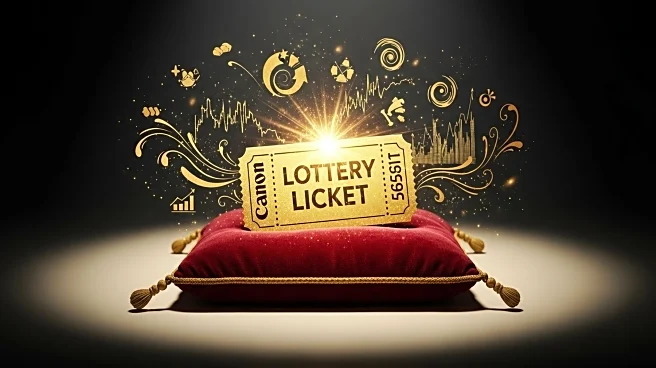What's Happening?
The $1.8 billion Powerball jackpot in September 2025 has significantly influenced consumer behavior and market dynamics. With 162 million tickets sold in the final week, representing a 189% increase, the event has redirected discretionary spending towards lottery participation. Lower-income households have disproportionately spent their income on tickets, while retailers have reported reduced foot traffic as consumers prioritize lottery spending over other purchases. This phenomenon highlights the allure of speculative opportunities and their impact on consumer spending patterns.
Why It's Important?
The Powerball jackpot serves as a case study in lottery-driven consumer behavior, illustrating how high-risk, low-probability events can reshape spending habits. The event has implications for retail sectors, as lottery spending often crowds out expenditures on non-essential goods. Additionally, it exposes psychological biases in investment decision-making, where individuals prefer speculative gains over steady returns. This trend raises ethical concerns about regressive taxation, as lower-income households effectively subsidize state budgets through lottery participation.
What's Next?
The Powerball event may prompt further analysis of consumer behavior and investment psychology, particularly in relation to speculative opportunities. Financial advisors may emphasize the importance of disciplined investment strategies to counter the 'lottery effect.' States may continue to rely on lottery revenues for funding, but debates about the ethical implications of this model are likely to persist.
Beyond the Headlines
The jackpot highlights broader economic and psychological trends, including the risks of treating lottery participation as an investment strategy. It underscores the need for sustainable wealth-building practices and raises questions about the societal impact of lottery-driven spending. The event may also influence discussions on financial literacy and the role of lotteries in state funding.








